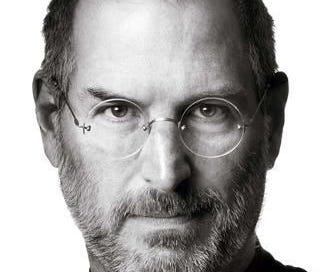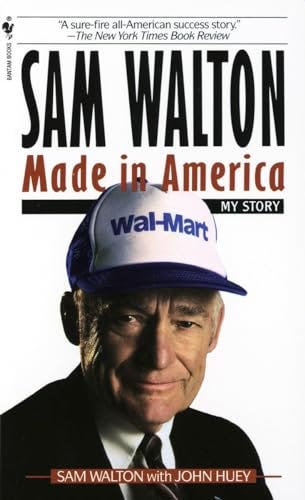Innovation isn't merely about inventing something new; it's about reimagining the possible. Resilience isn't just bouncing back from setbacks; it's transforming those setbacks into stepping stones. Curiosity isn't just asking questions; it's relentlessly seeking answers that challenge the status quo. And thinking differently isn't just about contrarianism; it's about seeing the world through a unique lens, one that reveals opportunities others miss. These are the hallmarks of true visionaries, the leaders who don't just follow trends, but create them. They are the architects of change, the individuals who possess the rare combination of audacity and pragmatism to reshape industries and, in turn, redefine the very fabric of our lives.
Steve Jobs by Walter Isaacson
Walter Isaacson's "Steve Jobs" paints a compelling portrait of a complex and driven visionary. It delves into Jobs' relentless pursuit of perfection, showcasing his ability to fuse art and technology into revolutionary products. From the Macintosh to the iPhone, Jobs possessed an uncanny knack for anticipating consumer desires, often before they were even articulated. His insistence on simplicity and elegance, coupled with a fierce attention to detail, transformed entire industries. This biography reveals how his singular focus, at times bordering on obsession, fueled his innovative spirit and ultimately shaped the modern digital landscape.
Jobs' influence extended far beyond the realm of product design. He was a master of branding and marketing, understanding the power of creating a compelling narrative around his creations. His "reality distortion field," a combination of charisma, persuasion, and sheer willpower, allowed him to inspire and motivate teams to achieve seemingly impossible goals. The book explores the contradictions inherent in Jobs' personality – his brilliance and passion often accompanied by a ruthless intensity and a disregard for conventional business practices. Isaacson masterfully illustrates how these seemingly conflicting traits were integral to Jobs' success, leaving the reader both fascinated and challenged by the legacy of this iconic figure.
Made In America by Sam Walton and John Huey
Sam Walton's "Made in America" is a captivating account of one man's relentless pursuit of the American dream, a journey that revolutionized the retail landscape. Walton's story is one of unwavering dedication to customer service, a deep-seated belief in empowering his employees, and a constant drive for innovation. He pioneered strategies like everyday low prices, efficient distribution, and a hands-on management style that transformed a small-town Arkansas store into the retail giant known as Walmart. This autobiography reveals the humble beginnings and the unwavering principles that fueled Walton’s extraordinary success, showcasing his keen understanding of the customer and his ability to build a company culture that prioritized value and efficiency.
Walton's influence extended far beyond the bottom line. He championed a philosophy of servant leadership, emphasizing the importance of listening to his employees and sharing the company's success. He instilled a culture of frugality and hard work, demonstrating that even a massive corporation could maintain a small-town feel. The book paints a vivid picture of a man who was both a shrewd businessman and a genuine people person, a combination that allowed him to build a company that not only dominated the retail industry but also left a lasting impact on American culture. Walton's narrative is a testament to the power of perseverance, innovation, and a unwavering commitment to serving the customer, leaving the reader inspired by his remarkable journey.
The Everything Store by Brad Stone
Brad Stone's "The Everything Store" provides a comprehensive and compelling look into the rise of Amazon and its intensely driven founder, Jeff Bezos. The book meticulously traces Amazon's journey from its humble beginnings as an online bookstore to its current status as a global e-commerce and technology giant. Stone reveals Bezos's unwavering focus on long-term growth, his relentless pursuit of customer satisfaction, and his willingness to take bold risks. The narrative delves into Amazon's innovative strategies, such as its focus on logistical efficiency, its development of Amazon Prime, and its expansion into cloud computing with Amazon Web Services, showcasing how these initiatives propelled the company's explosive growth.
Stone's work also provides a nuanced portrayal of Bezos himself. The book explores his unique leadership style, characterized by a demanding and data-driven approach, and his unwavering commitment to his vision of creating "the everything store." It reveals the company's culture, which is one of constant innovation and a strong emphasis on frugality. By providing access to former and current Amazon employees, Stone paints a picture of the company that is both inspiring and, at times, controversial. The book is a must-read for anyone seeking to understand the forces shaping the modern digital economy, and the mind of one of its most influential figures.
These three figures, Steve Jobs, Sam Walton, and Jeff Bezos, each in their own distinct way, have fundamentally reshaped the landscape of business and, consequently, our very society. Jobs revolutionized personal technology, placing powerful computing and communication tools in the hands of billions, while Walton democratized retail, making goods accessible and affordable to vast swaths of the population. Bezos, in turn, redefined commerce itself, creating a platform that has altered how we shop, consume media, and even access cloud computing. Their combined impact has been to accelerate the pace of innovation, redefine customer expectations, and create a world where technology and convenience are deeply intertwined with daily life. Has it occurred to you, while reading these accounts, to imagine a world devoid of their transformative visions? How fundamentally different would our lives be if these pioneers had chosen a different path, or perhaps, had never existed at all?






